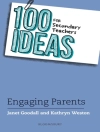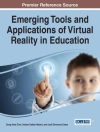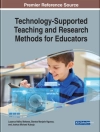In an era when corporate and political leaders are using their power to control every aspect of the schooling process in North America, there has been surprisingly little research on the impact of textbook content on students. The contributors of this volume and its partner (The New Politics of the Textbook: Problematizing the Portrayal of Marginalized Groups in Textbooks) guide educators, school administrators, academics, and other concerned citizens to unpack the political, social, and cultural influences inherent in the textbooks of core content areas such as math, science, English, and social science. They urge readers to reconsider the role textbooks play in the creation of students’ political, social, and moral development and in perpetuating asymmetrical social and economic relationships, where social actors are bestowed unearned privileges and entitlements based upon their race, gender, sexuality, class, religion and linguistic background. Finally, they suggest ways to resist the hegemony of those texts through critical analyses, critical questioning, and critical pedagogies.
Daftar Isi
Foreword; Contributors; Introduction; Part I: Political, Social and Cultural Influence; Textbooks as Mechanisms for Teacher’s Sociopolitical and Pedagogical Alienation; Missing and Shrinking Voices: A Critical Analysis of the Florida Textbook Adoption Policy; The Ruling Ideas in the Textbook; The Competency-Based Approach in African Textbooks: An Approach Dominated by Economic, Political, and Cultural Interests from the North; Part II: Math and Science Education; (Re)presenting Critical Mathematical Thinking through Sociopolitical Narratives as Mathematics Texts; Science and Mathematics Textbook Progression: Textbooks, Testing, and Teaching; Politics and Science Textbooks: Behind the Curtain of “Objectivity”; Beyond the Common Denominator: Exposing Semiotic (Dis)unity in Mathematics Textbooks; Green Texts? Earth Smarts as a Tool to Critically Examine Textbooks for Environmental Assumptions, Distortions and Missions; Part III: English Language Arts Education; Muted Voices, Scripted Texts: The Silenced Writing Curriculum in a High-Stakes Era; From Textbooks to “Managed Instructional Systems”: Corporate Control of the English Language Arts; How Scripted Programs De-Professionalized the Teaching of Reading: A California Story; Remembering the Present Is the Past Writ Large: An Examination of the Politics of the Dominant Texts in the United States, 1700s-1900s; Part IV: Social Science and Humanities Education; Selecting History: What Elementary Educators Say about Their Social Studies Textbook; Imagining Nation in Romanian History Textbooks: Towards a Liberating Identity Narrative; Idealizing and Localizing the Presidency: The President’s Place in State History Textbooks; Throwing out the Textbook: A Teacher Research Study of Changing Texts in the History Classroom; Choose Carefully: Multiple Choice History Exams and the Reification of Collective Memory; Afterword.












